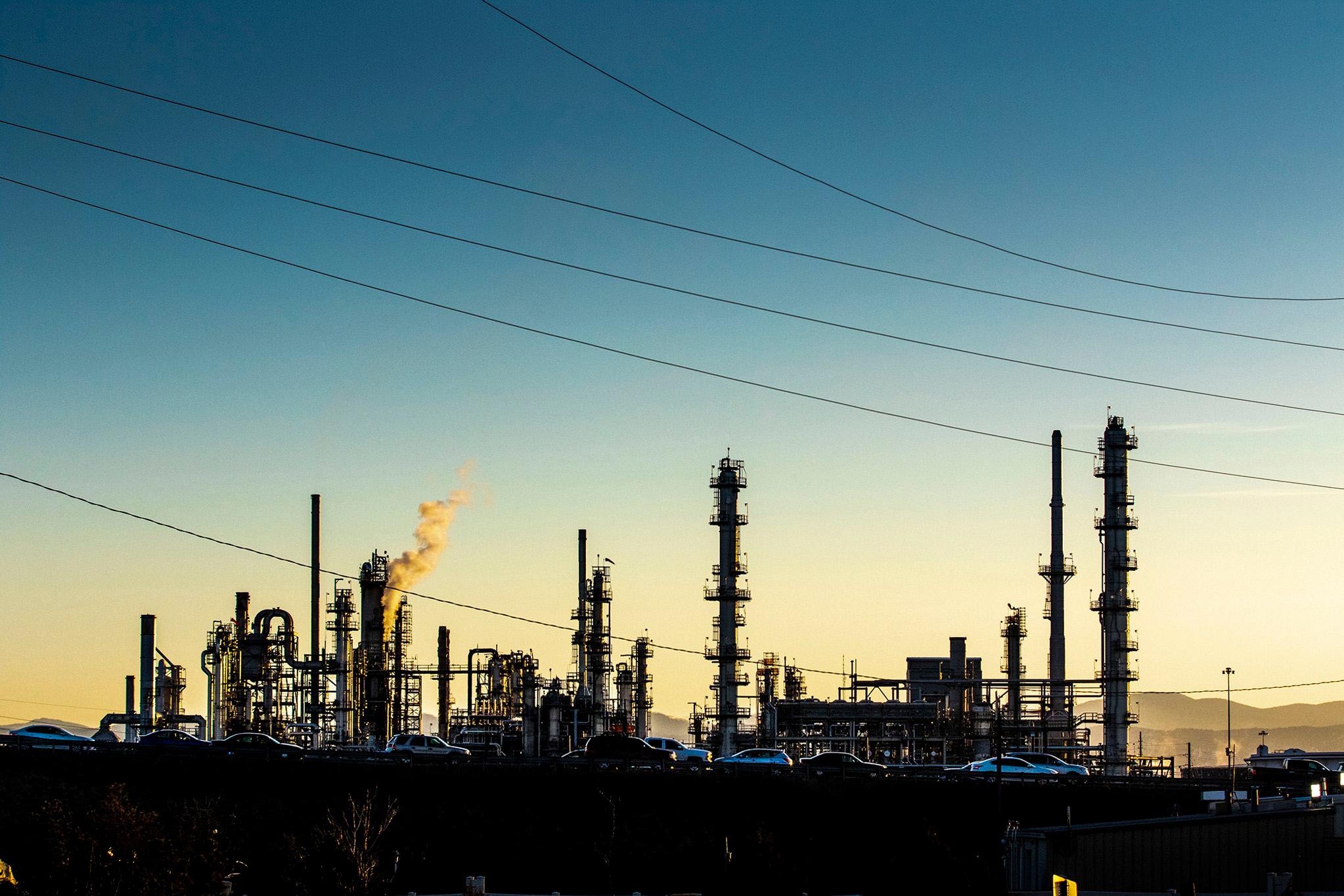
Last week, the U.S. Environmental Protection Agency told Colorado air regulators to go back to the drawing board on parts of their proposed air pollution permit for the state's only oil and gas refinery.
Suncor Energy operates the facility in Commerce City. Repeated air quality violations have made the refinery into a symbol of environmental injustice in the largely Latino, low-income suburb north of Denver.
The EPA's formal objection demanded the state health department reconsider its decision to exempt three places where the refinery burns excess gas — a practice known as flaring — from monitoring requirements. The federal agency also recommended Colorado regulators allow the public to weigh in with comments when Suncor applies to modify its air pollution permit, which the state has allowed about 40 times since it last made major revisions to the permit in 2009 — all without input from the public.
“The objections and recommendations we are sharing today reflect EPA’s continuing focus on Clean Air Act compliance at the Suncor facility and a strong commitment to public health, engagement, and equity for nearby residents and their communities,” said EPA Regional Administrator K.C. Becker, a Boulder environmental lawyer and the former speaker of the Colorado House.
State health officials will have to submit a new permit
The Colorado Department of Public Health has 90 days to submit a new permit in response to the EPA's objections, a deadline an agency spokesperson said it plans to meet. Suncor, a financial sponsor of CPR News, can continue to operate the facility while the new permit is under consideration.
The federal objection was a pleasant surprise to climate advocates like Renee Millard-Chacon. A Commerce City resident and executive director of the environmental justice group Womxn From the Mountain, Millard-Chacon said the EPA’s recommendation for more public participation is especially important.
"It proves what communities have maintained for decades: state agencies do not have the concerns of disproportionately impacted communities at the center of public health and safety," Millard-Chacon said.
Suncor needs the permit to operate the refinery in accordance with the federal Clean Air Act. The 373-page draft version of the permit compiles everything the company must do to operate a major source of air pollution, including emission limits and monitoring requirements.
The new permit was long-delayed
Such permits — known as Title V permits —are meant to be renewed every five years. In Suncor's case, Colorado air regulators had allowed the company to operate part of the facility on an expired permit since 2011, a year after the company submitted an application to renew the operating license.
The Colorado Air Pollution Control Division submitted the new permit to the EPA in February 2022 after a judge ordered regulators to act following lawsuits from environmental groups over the delay.
Colorado air regulators held two public meetings to gather comments on the proposed changes ahead of releasing the new draft permit.
In the letter objecting to the draft permit, Becker with the EPA praised the public outreach but noted it was long overdue. Since Colorado regulators last issued a full operating permit in 2006, the February 2021 meetings were the first time the public had a chance to weigh in on a number of modifications at the refinery in a decade and a half.
Colorado regulators overhauled Suncor’s permit in 2009. Since then, regulators approved 29 changes at the refinery classified as "minor modifications,” a process that doesn’t require public notice — even if the modification could increase emissions. While this practice is legal, Becker’s letter from the EPA notes allowing such changes without public comment "raises significant concerns."
Concerns expressed by Rep. Diana DeGette seem to have been heard by the EPA
Rep. Diana DeGette, a Democrat representing Denver, has also expressed alarm about Colorado air regulators using the “minor modification” process to approve changes at the Suncor refinery. In a March letter to EPA Administrator Michael Regan, she asked the agency to audit the “minor” projects and decide whether they should have been considered "major modifications," which would require additional steps to limit any pollution increases.
It appears the EPA partially followed through on the request. The agency’s March 25 objection to the draft permit asks Colorado regulators to analyze whether any "minor modifications" should have been considered major projects.
In a statement, Andrew Bare, a spokesperson with the Air Pollution Control Division, said regulators have a panel of experts set to recommend improvements to its guidelines for minor permit modifications. A separate state Environmental Justice Action Task Force is developing a set of guidelines to increase the public’s involvement in the permitting process.
Millard-Chacon, the Commerce City activist, is a member of the task force. While she appreciates the state's efforts to gather impacted communities, she said what matters is whether or not the state acts on the information.
"In the end, it's not just how many meetings and how many councils and how much take we have. It's if they're really implementing change," Millard-Chacon said.
More coverage of the Suncor refinery:
- Climate change is worsening ozone problems on the Front Range. Hispanic communities feel it the most
- Colorado now requires real-time air monitoring for heavy polluters
- Commerce City Nonprofit Wins Suncor Energy Fine Money, Will Use It To Monitor Suncor Energy
- Ash from the sky, a sheen on the creek and now a nasty smell adds to Suncor’s year of unintended emissions









